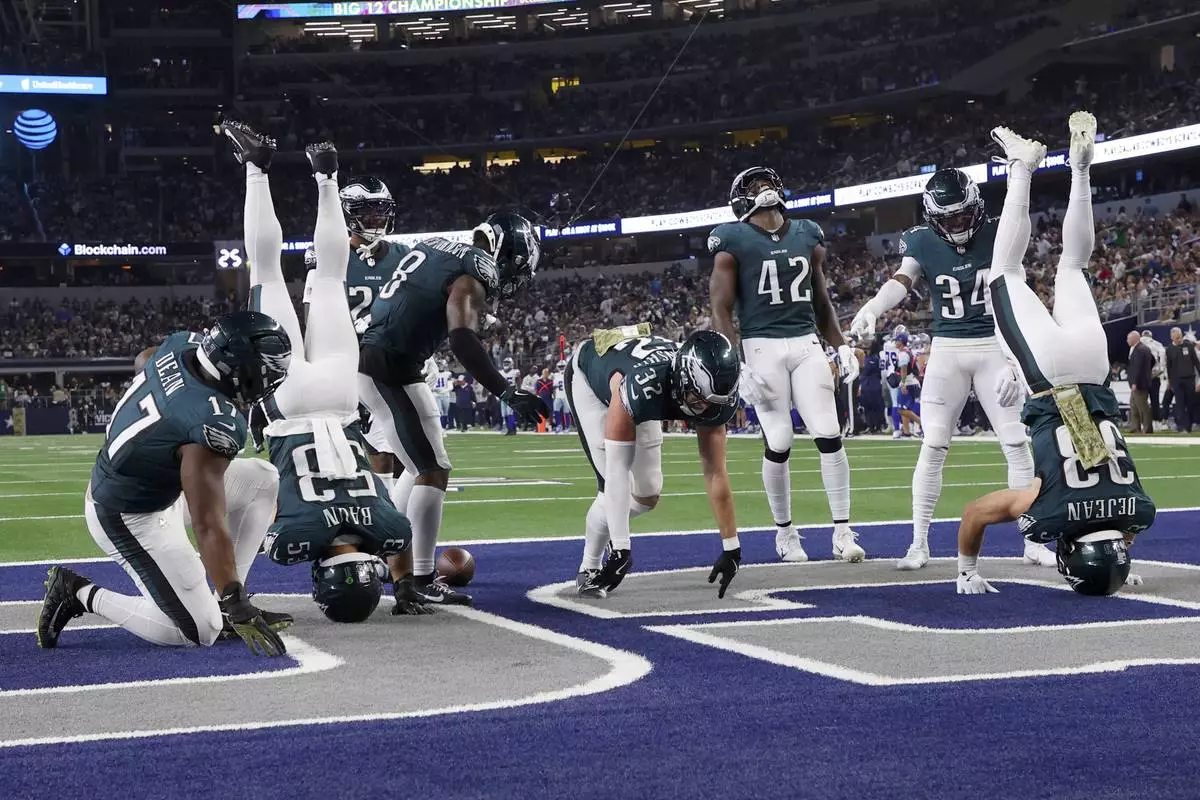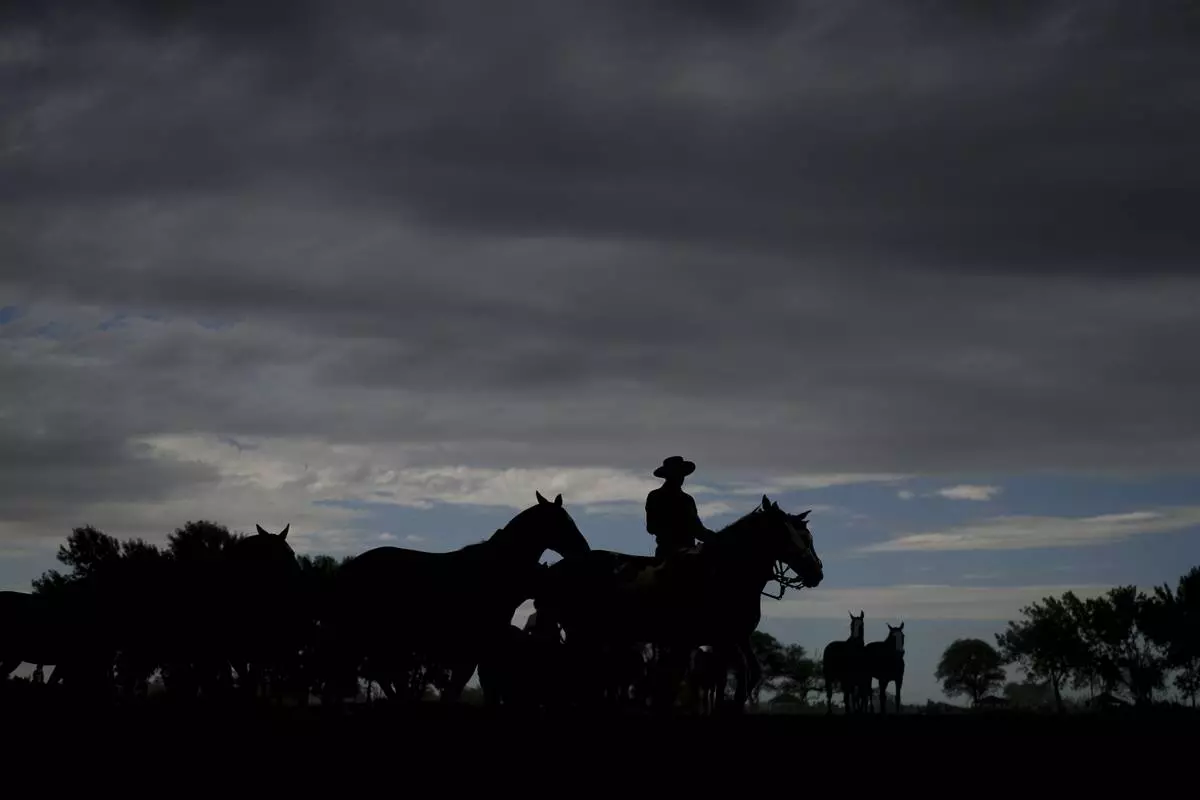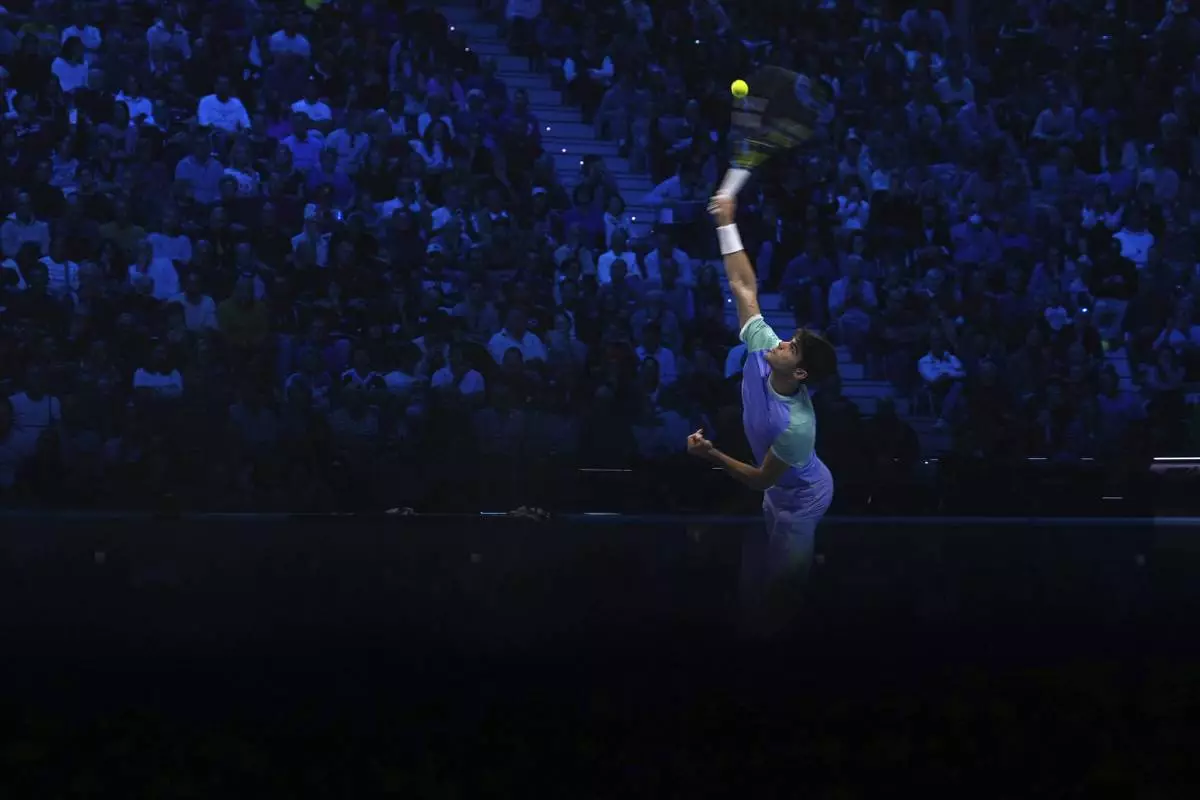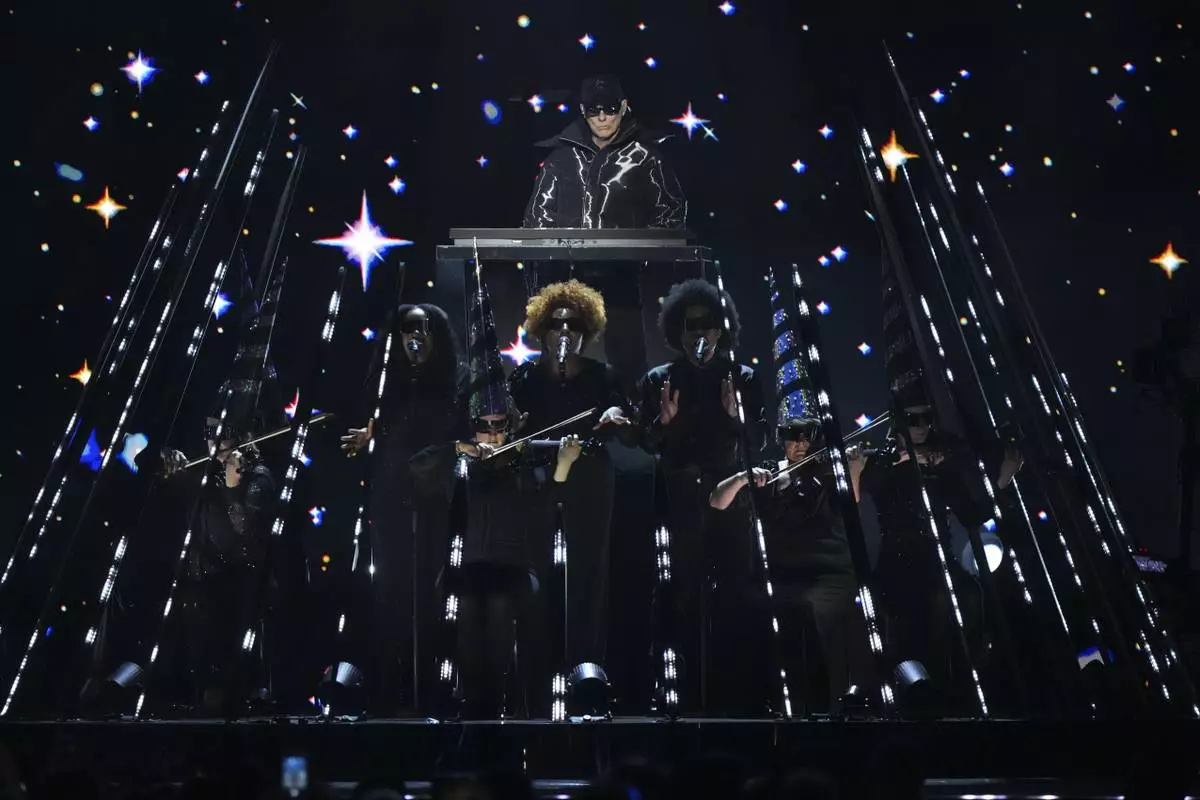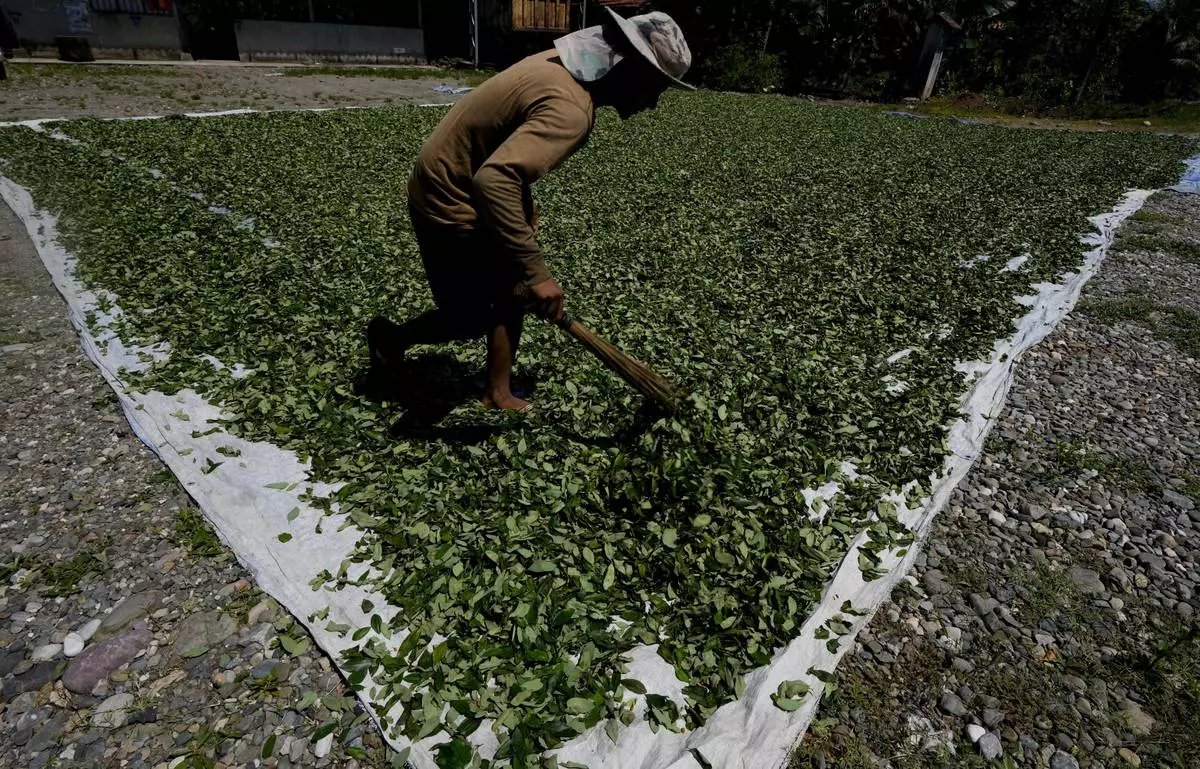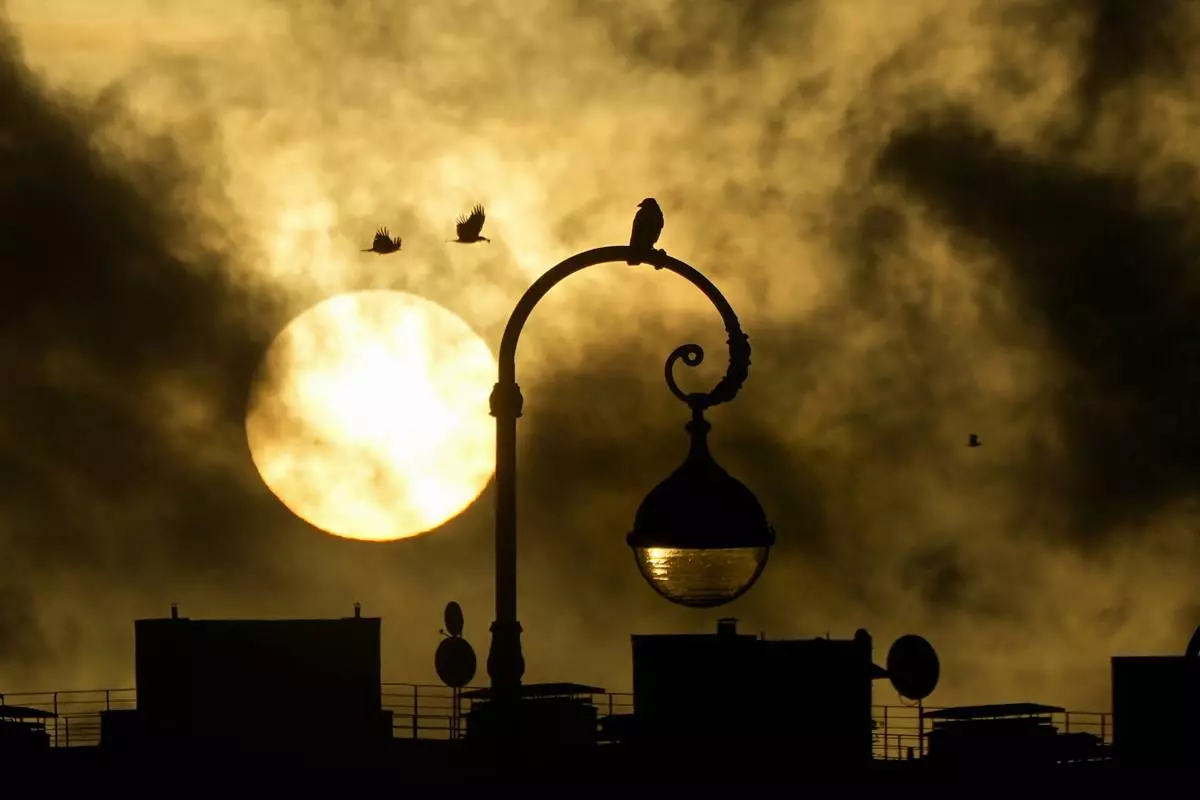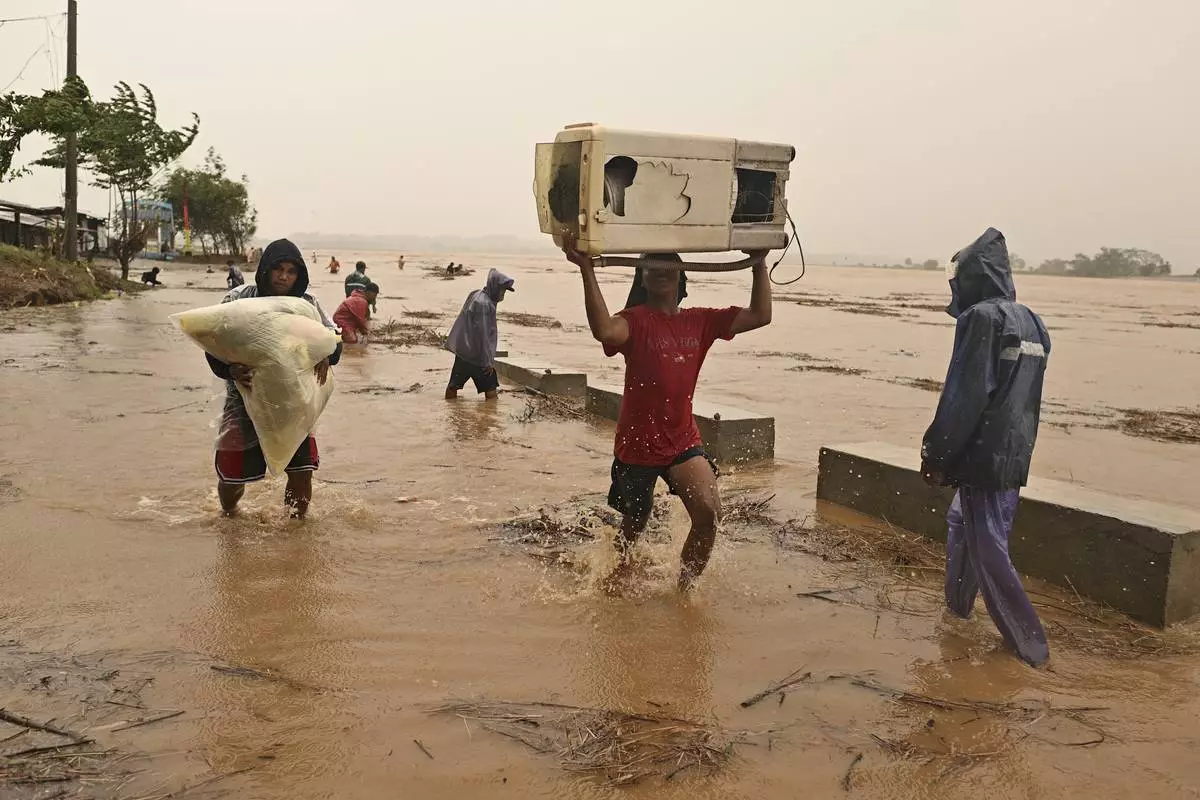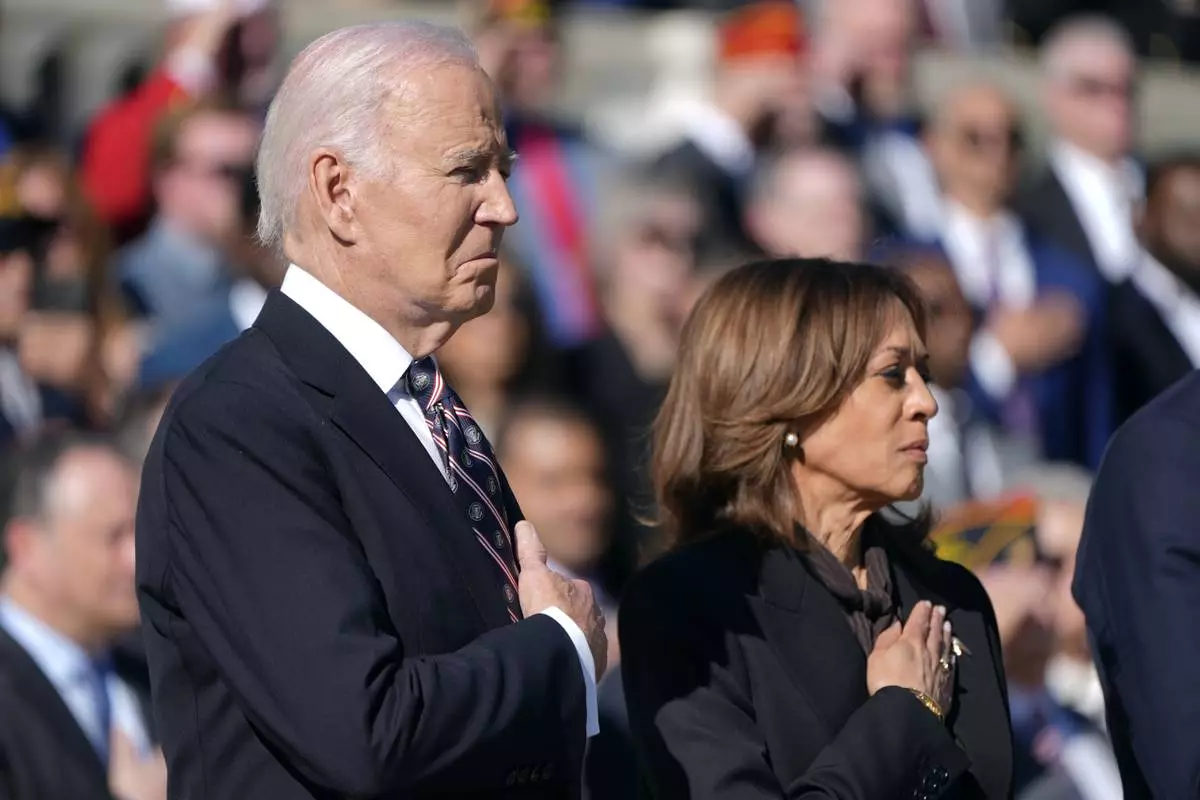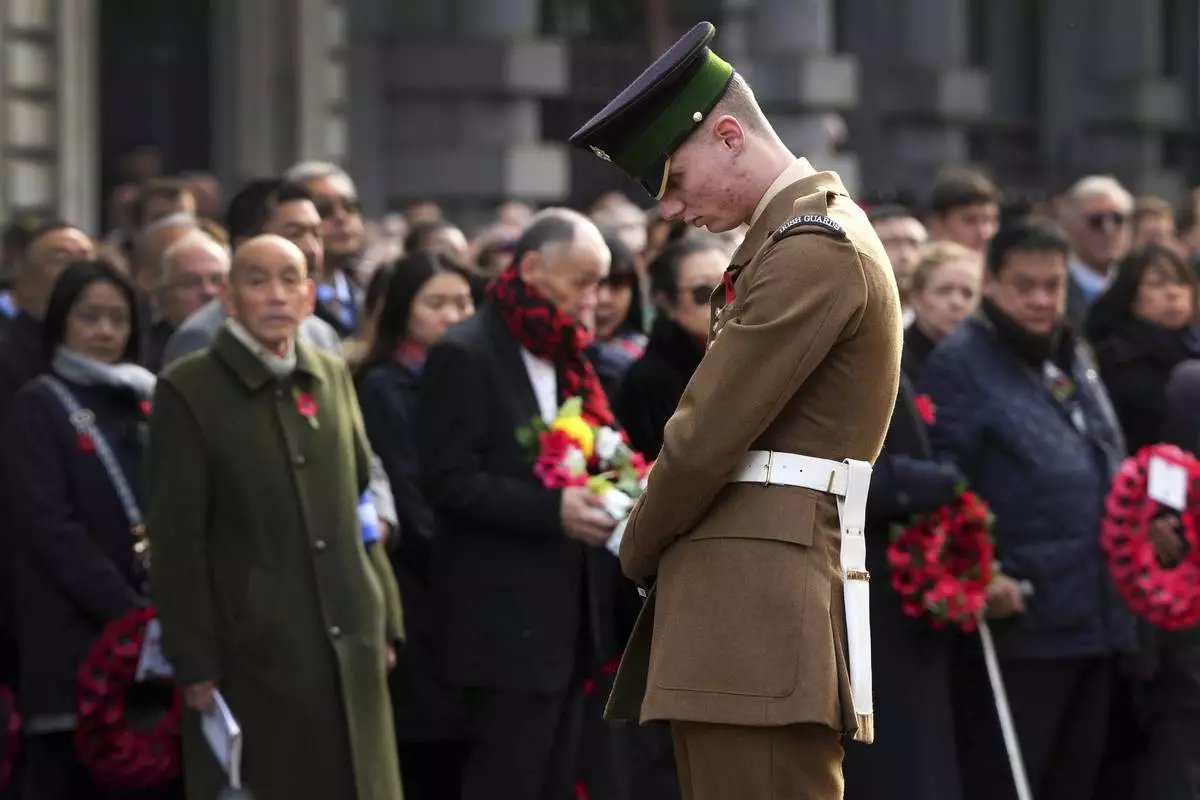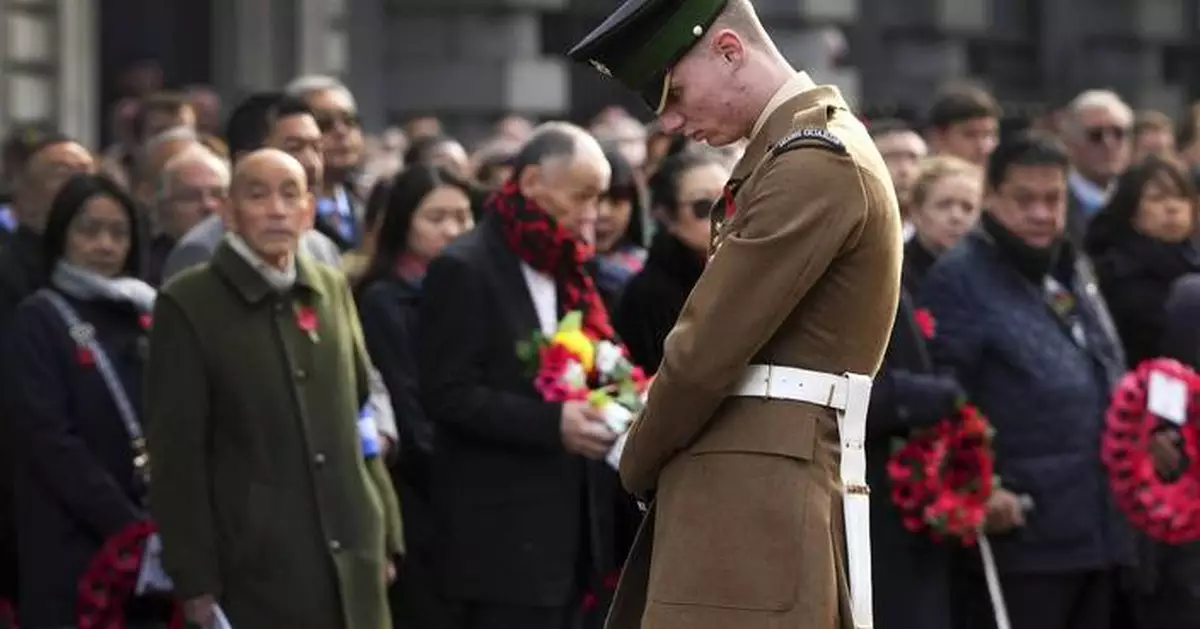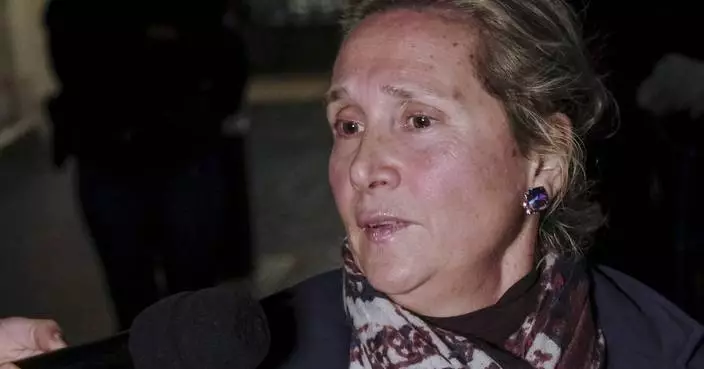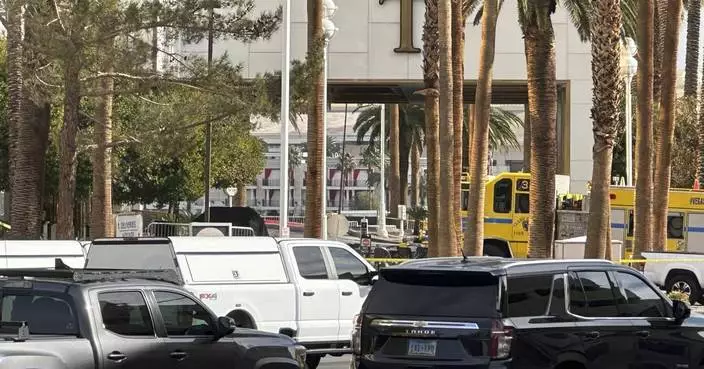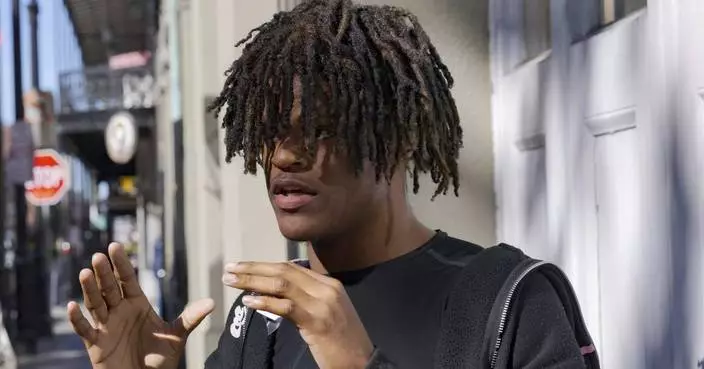SEOUL, South Korea (AP) — South Korea’s anti-corruption agency has dispatched investigators to execute a warrant to detain impeached President Yoon Suk Yeol as hundreds of his supporters are gathered at his residence in Seoul, vowing to block their approach.
Investigators of the Corruption Investigation Office for High-Ranking Officials were seen loading boxes into several vehicles before leaving their building in the city of Gwacheon early Friday.
The office didn’t immediately confirm how many investigators were sent.
A Seoul court issued a warrant for Yoon’s detention after he evaded multiple requests to appear for questioning and blocked searches of his office in Seoul, hindering an investigation into whether his short-lived power grab on Dec. 3 amounted to rebellion.
Yoon in a message to conservative supporters rallying outside said he will “fight to the end” against “anti-state forces,” while his legal team warned Thursday that police officers attempting to detain him could face arrest by his presidential security service or even civilians.
THIS IS A BREAKING NEWS UPDATE. AP’s earlier story follows below.
SEOUL, South Korea (AP) — Impeached South Korean President Yoon Suk Yeol, in a message to conservative supporters rallying outside his Seoul residence, vowed to “fight to the end” against “anti-state forces,” while his legal team warned Thursday that police officers attempting to detain him could face arrest by his presidential security service or even civilians.
Yoon’s latest statement of defiance came as the Corruption Investigation Office for High-Ranking Officials prepared to execute a detainment warrant against him that was issued by a Seoul court on Tuesday and is valid for one week. The warrant was issued after Yoon evaded multiple requests to appear for questioning and blocked searches of his office, hindering an investigation into whether his hourslong martial law imposition on Dec. 3 amounted to rebellion.
Oh Dong-woon, the anti-corruption agency’s chief prosecutor, has indicated that police forces might be deployed if Yoon’s security service resists the detention attempt, which could occur as early as Thursday. But it remains unclear whether Yoon can be compelled to submit to questioning.
Yoon’s legal team issued a statement on Thursday warning that any attempt by the anti-corruption agency to use police units for his detention would exceed their legal authority. The lawyers said police officers could face arrest by either the “presidential security service or any citizens” if they try to detain Yoon. They didn’t elaborate further on the claim.
South Korean law permits anyone to make an arrest to stop an active crime, and critics accused Yoon of inciting his supporters to obstruct attempts to detain him.
In a message to supporters gathered outside his residence Wednesday evening, Yoon said he would continue to fight against anti-state forces “violating our sovereignty” and putting the nation in “danger.” He applauded his supporters for their efforts to protect “liberal democracy and constitutional order” and said he was watching their protests on live YouTube broadcasts, according to a photo of the message shared by Yoon’s lawyers.
Yoon Kap-keun, the president’s lawyer, filed a challenge with the Seoul Western District Court on Thursday to block both the detention warrant for Yoon Suk Yeol and a related search warrant for his residence. The lawyer argued that both warrants violate criminal laws and the constitution.
The liberal opposition Democratic Party, which drove the legislative vote that impeached Yoon Suk Yeol on Dec. 14 over his imposition of martial law, accused the president of trying to mobilize his supporters to block his detention and called for law enforcement authorities to execute the warrant immediately.
Braving subfreezing temperatures, thousands of Yoon’s supporters rallied for hours near his residence on Thursday amid a heavy police presence, waving South Korean and American flags while chanting, “Nullify the impeachment!” and “We will protect President Yoon Suk Yeol!” Officers removed some protesters who laid down on a road leading to the entrance of Yoon’s residence, but there were no immediate reports of major clashes.
“The Corruption Investigation Office must detain him immediately, and the presidential security service must cooperate with the lawful execution of the detainment warrant,” said Park Chan-dae, the Democrats’ floor leader.
“They should be aware that obstructing the execution of the detainment warrant could result in punishment for interference with official duties and complicity in rebellion,” he said.
Yoon’s lawyers have argued that the court’s detainment warrant is invalid, claiming that the anti-corruption agency lacks the legal authority to investigate rebellion charges. They also accuse the court of bypassing a law that says locations potentially linked to military secrets cannot be seized or searched without the consent of the person in charge.
Some experts believe the anti-corruption agency, which is leading a joint investigation with police and military authorities, would not risk clashing with Yoon’s security service, which has said it will provide security to Yoon in accordance with the law. The office may instead issue another summons for Yoon to appear for questioning if they are not able to execute the detainment warrant by Jan. 6.
If Yoon is detained, the anti-corruption agency will have 48 hours to investigate him and either request a warrant for his formal arrest or release him. Yoon’s defense minister, police chief and several top military commanders have already been arrested over their roles in the martial law enactment.
Yoon’s presidential powers were suspended following a National Assembly vote to impeach him on Dec. 14 over his imposition of martial law, which lasted only hours but has triggered weeks of political turmoil, halted high-level diplomacy and rattled financial markets. Yoon’s fate now lies with the Constitutional Court, which has begun deliberations on whether to uphold the impeachment and formally remove Yoon from office or reinstate him.
To formally end Yoon’s presidency, at least six justices on the nine-member Constitutional Court must vote in favor.
The National Assembly voted last week to also impeach Prime Minister Han Duck-soo, who became acting president after Yoon’s powers were suspended, over his reluctance to fill three Constitutional Court vacancies ahead of the court’s review of Yoon’s case.
Facing growing pressure, the new acting president, Deputy Prime Minister Choi Sang-mok, appointed two new justices on Tuesday, which possibly increased the chances of the court upholding Yoon’s impeachment.
Cho Han-chang, one of the newly appointed justices, said Thursday that he began his job with a “heavy heart.” Jeong Gye-seon, the other new justice, expressed hope that the remaining vacancy would be filled.
Yoon’s imposition of martial law ended after only six hours when the National Assembly voted 190-0 to lift it despite attempts by heavily armed soldiers to prevent them from voting.
Yoon has defended his martial law decree as a necessary act of governance, portraying it as a temporary warning against the Democratic Party, which he has described as an “anti-state” force obstructing his agenda with its legislative majority.
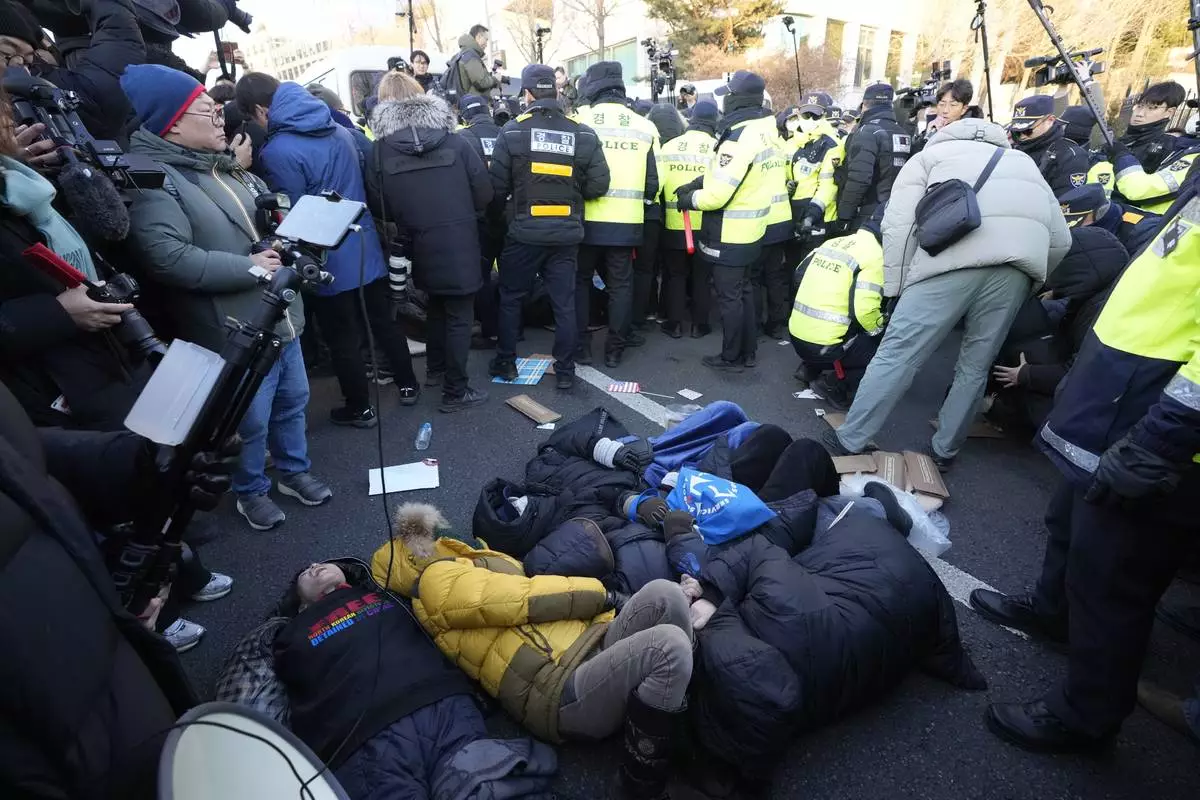
Supporters of impeached South Korean President Yoon Suk Yeol lie down on the ground as Yoon faces potential arrest after a court on Tuesday approved a warrant for his arrest, near the presidential residence in Seoul, South Korea, Thursday, Jan. 2, 2025. (AP Photo/Ahn Young-joon)
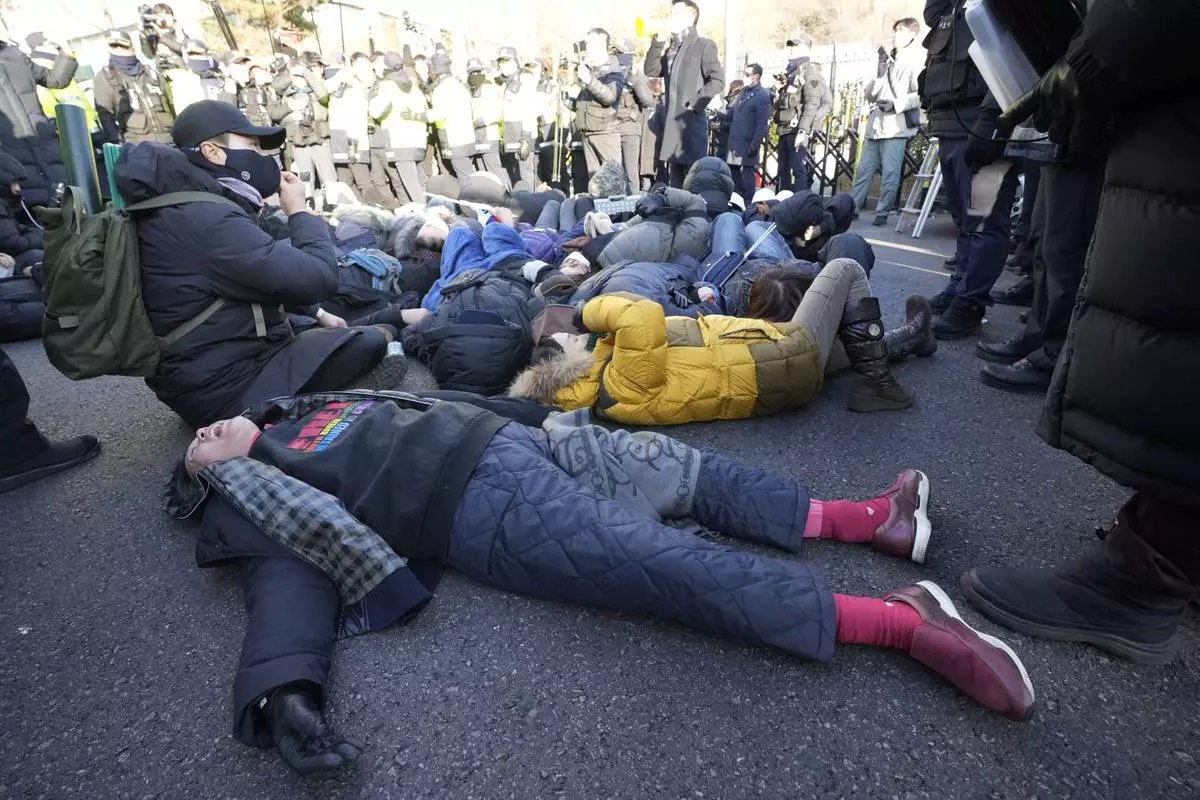
Supporters of impeached South Korean President Yoon Suk Yeol lie down on the ground as Yoon faces potential arrest after a court on Tuesday approved a warrant for his arrest, near the presidential residence in Seoul, South Korea, Thursday, Jan. 2, 2025. (AP Photo/Ahn Young-joon)
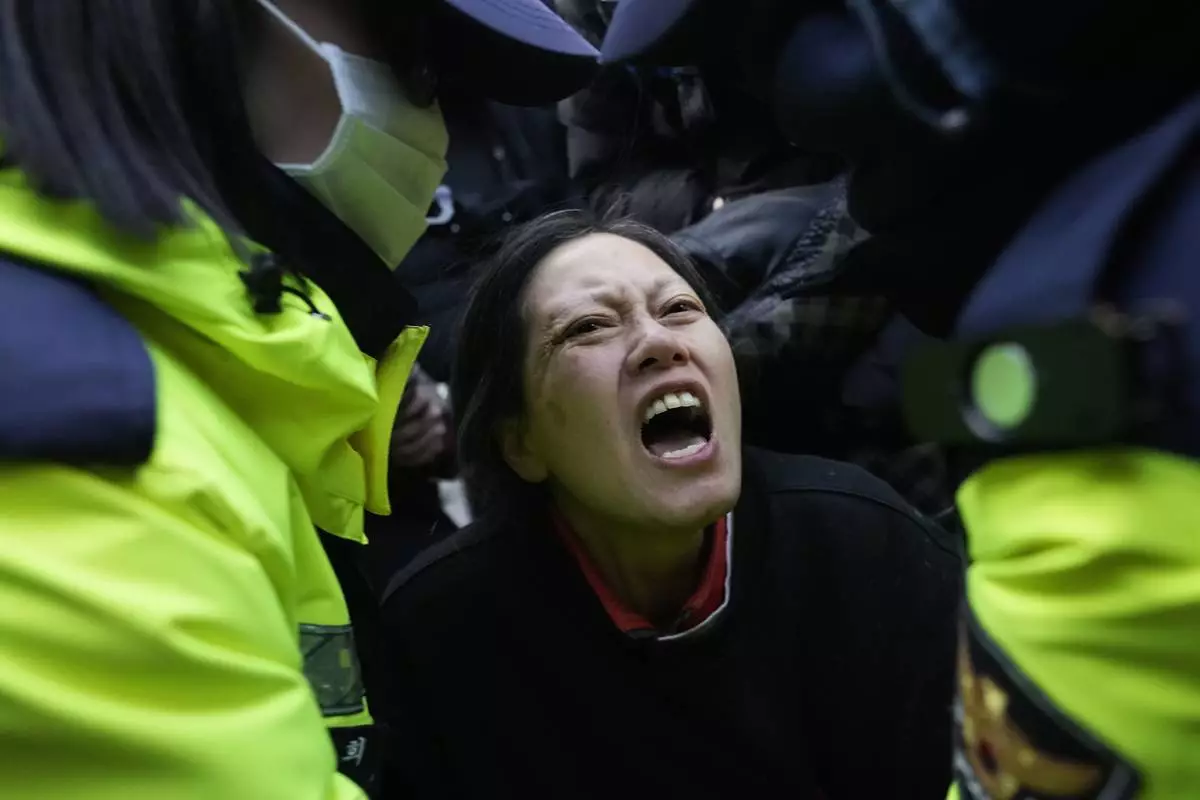
Police officers escort away a supporter of impeached South Korean President Yoon Suk Yeol as Yoon faces potential arrest after a court on Tuesday approved a warrant for his arrest, near the presidential residence in Seoul, South Korea, Thursday, Jan. 2, 2025. (AP Photo/Ahn Young-joon)
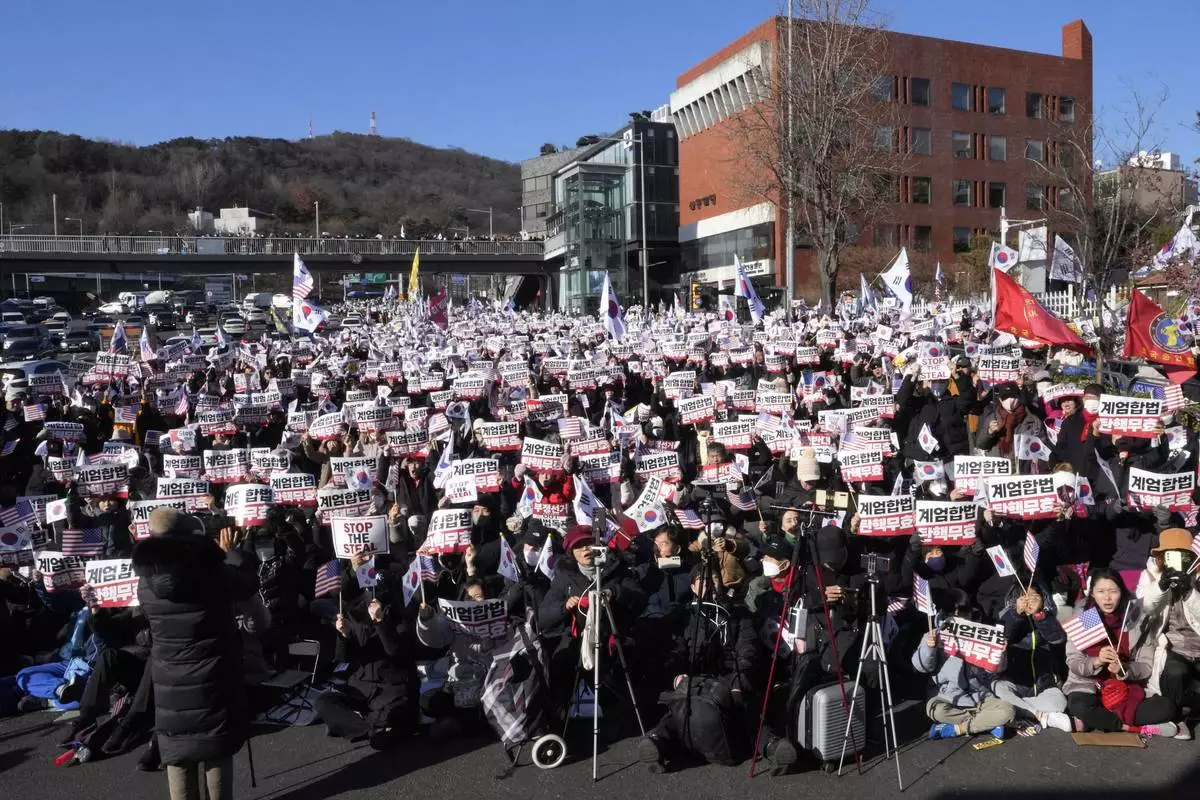
Supporters of impeached South Korean President Yoon Suk Yeol stage a rally to oppose a court having issued a warrant to detain Yoon, near the presidential residence in Seoul, South Korea, Thursday, Jan. 2, 2025. The signs read, "Oppose impeachment." (AP Photo/Ahn Young-joon)
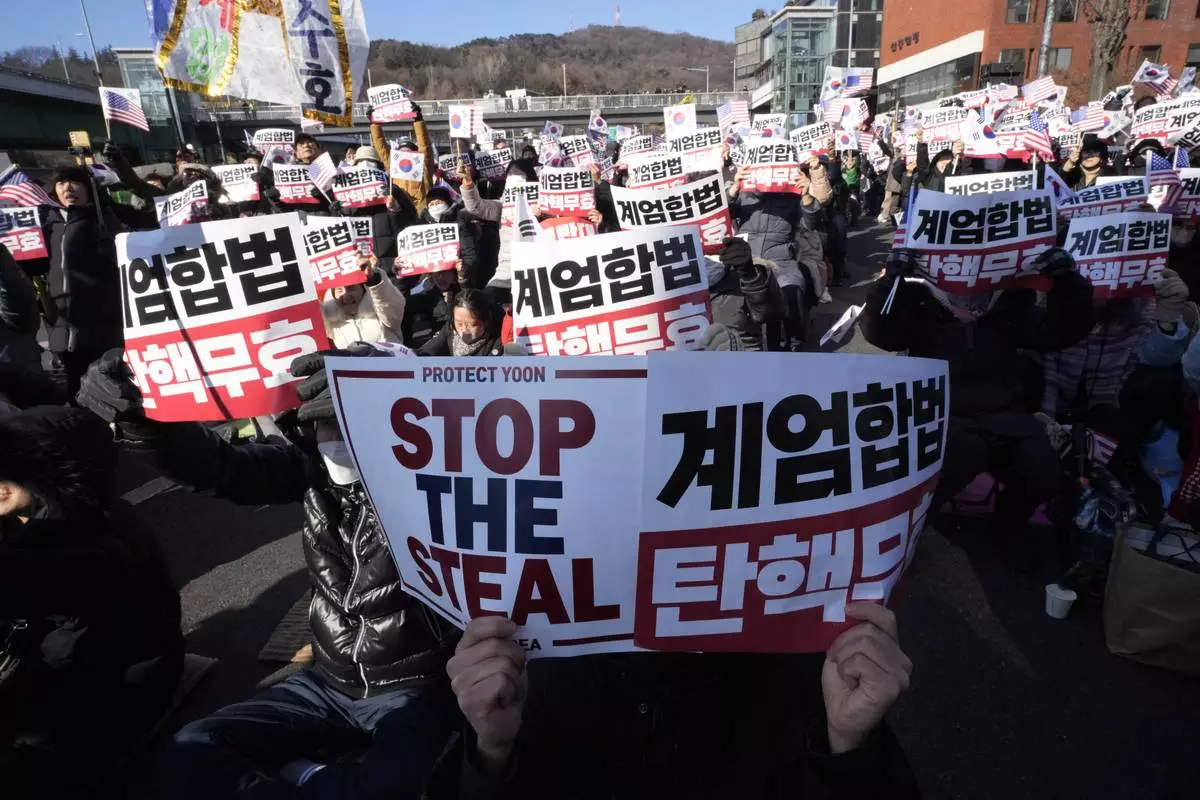
Supporters of impeached South Korean President Yoon Suk Yeol stage a rally to oppose a court having issued a warrant to detain Yoon, near the presidential residence in Seoul, South Korea, Thursday, Jan. 2, 2025. The signs read, "Oppose impeachment." (AP Photo/Ahn Young-joon)
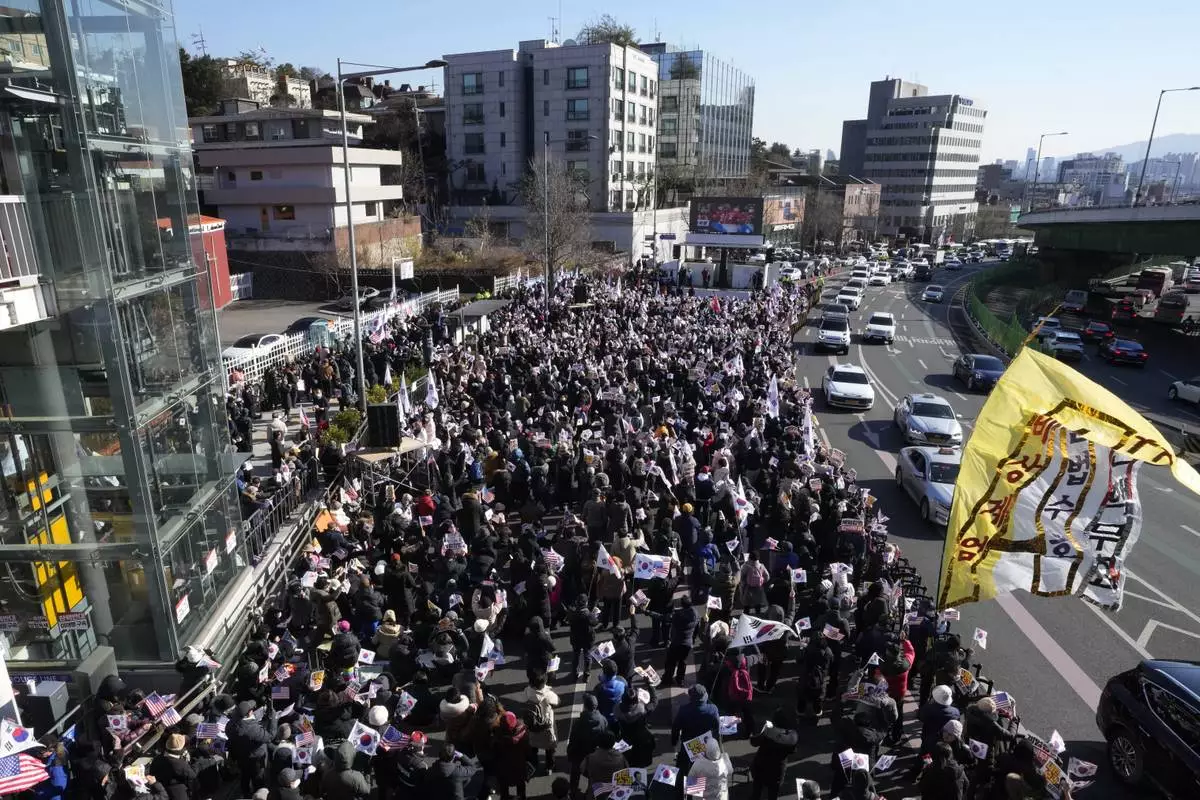
Supporters of impeached South Korean President Yoon Suk Yeol stage a rally to oppose a court having issued a warrant to detain Yoon, near the presidential residence in Seoul, South Korea, Thursday, Jan. 2, 2025. (AP Photo/Ahn Young-joon)
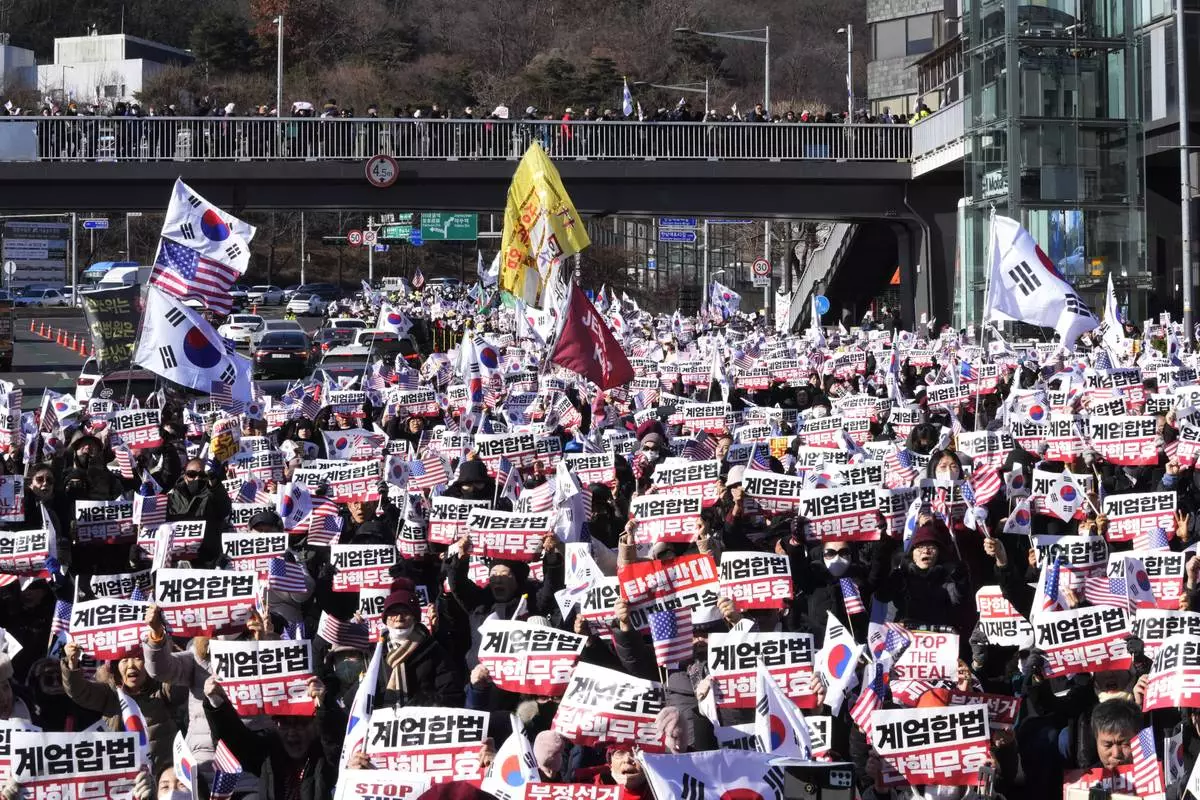
Supporters of impeached South Korean President Yoon Suk Yeol stage a rally to oppose a court having issued a warrant to detain Yoon, near the presidential residence in Seoul, South Korea, Thursday, Jan. 2, 2025. The signs read, "Oppose impeachment." (AP Photo/Ahn Young-joon)
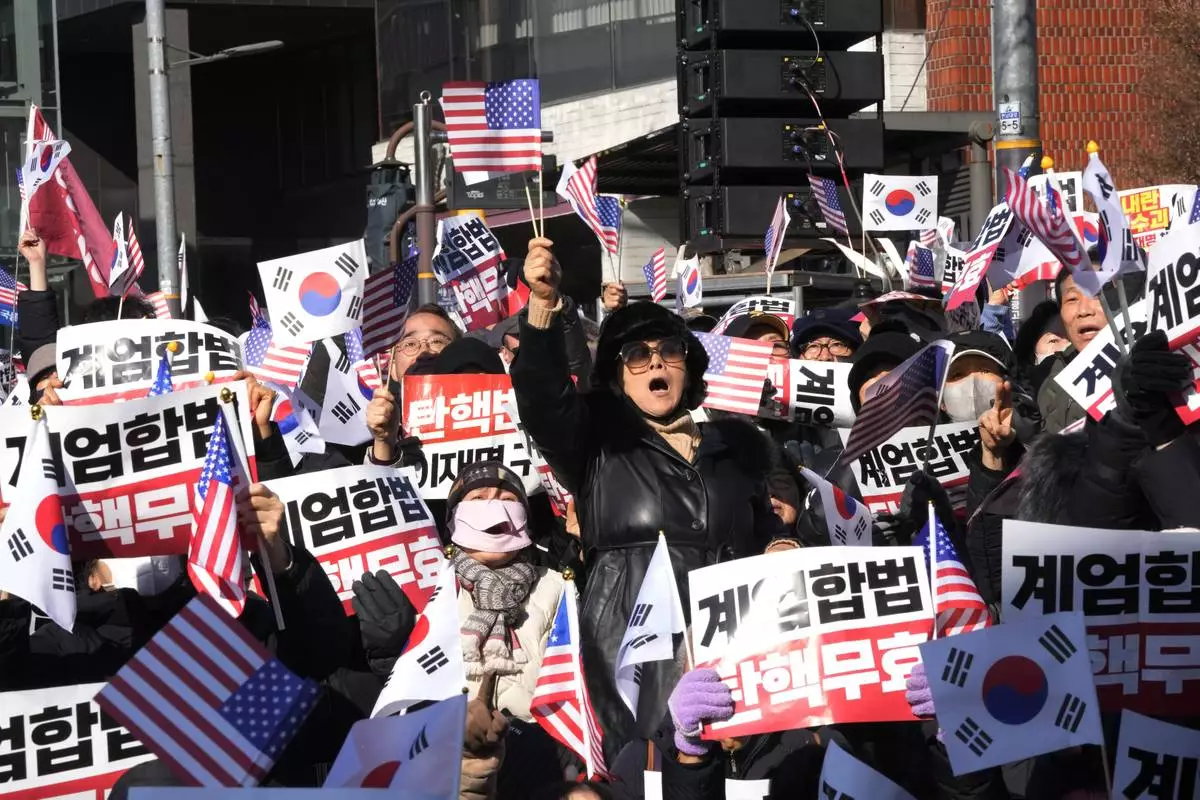
Supporters of impeached South Korean President Yoon Suk Yeol stage a rally to oppose a court having issued a warrant to detain Yoon, near the presidential residence in Seoul, South Korea, Thursday, Jan. 2, 2025. The signs read, "Oppose impeachment." (AP Photo/Ahn Young-joon)
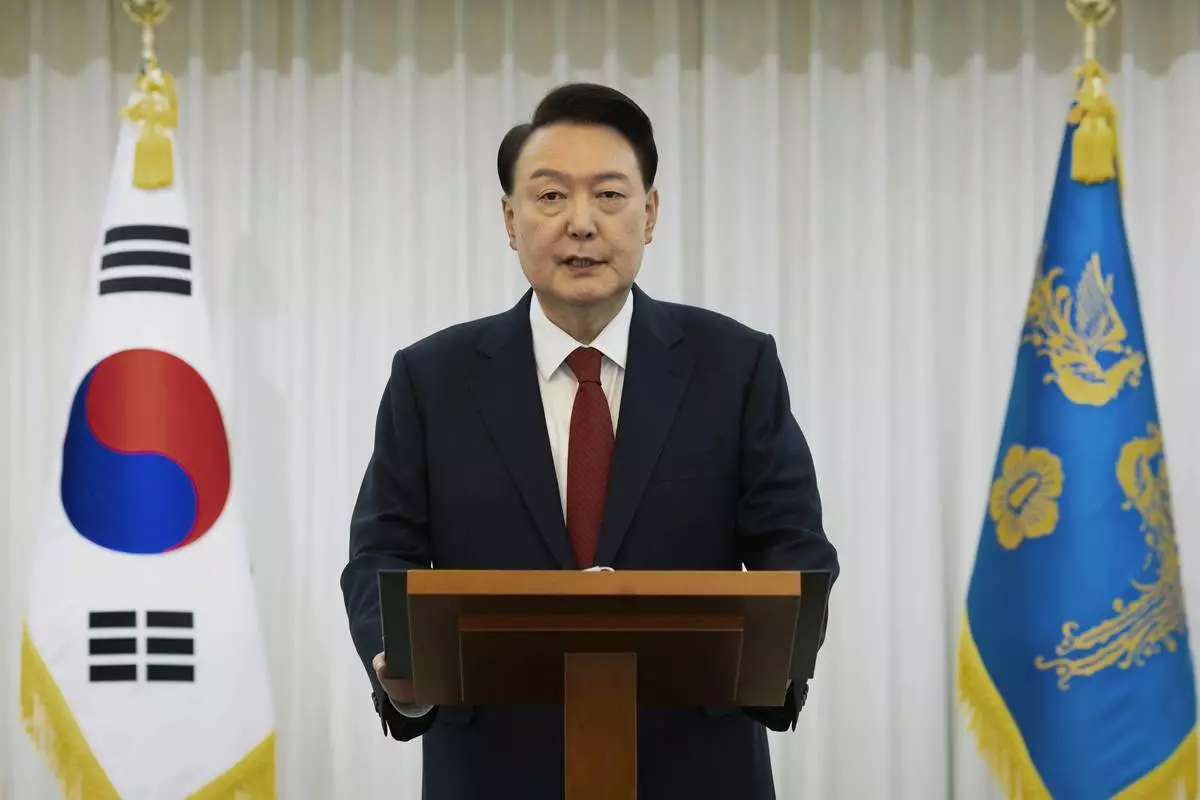
FILE - In this photo provided by the South Korean President Office, the country's President Yoon Suk Yeol speaks at the presidential residence in Seoul, South Korea, Dec. 14, 2024. (South Korean Presidential Office via AP, File)
